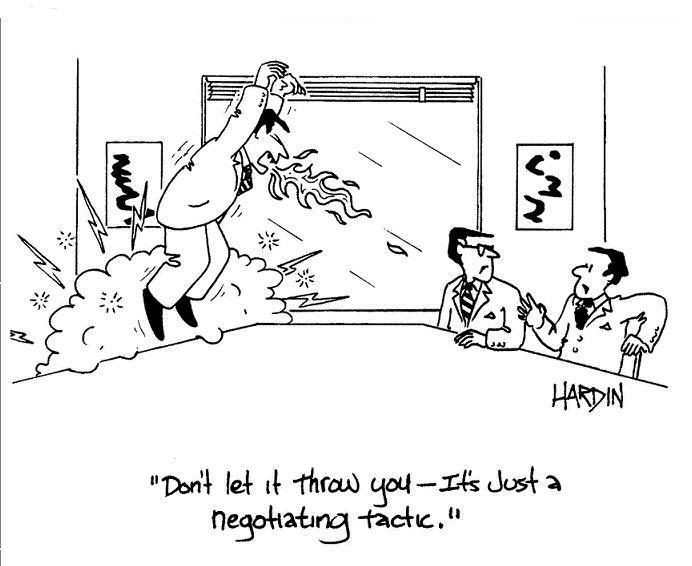 A negotiation begins when two parties involves share information. The thing is that most individuals are matchers. This means that they behave in accordance with the rule of reciprocity: they will treat you exactly how you treat them. Therefore, if you want these people to have faith in you, you need to show that you have faith in them.
A negotiation begins when two parties involves share information. The thing is that most individuals are matchers. This means that they behave in accordance with the rule of reciprocity: they will treat you exactly how you treat them. Therefore, if you want these people to have faith in you, you need to show that you have faith in them.
If you are interested in getting data, you have to start by offering data. However, it’s not a good idea to share data that could put you in a vulnerable position. Luckily, you can opt for two great methods in order to stay away from such scenarios.
Don’t reveal information that can be used against you
First of all, we have the selective information-sharing method. According to it, you have to share only data that can’t be utilized against you. When you start by revealing something private, you let the other party see that you are reliable, and this will make them want to respond by revealing something personal about themselves.
Rank-ordering
This method means that you have to list your concerns based on their significance. For instance, when you are at an interview for a potential job, you can state that remuneration is most significant to you, followed by other aspects such as location, and vacation days. Studies have proven that rank-ordering is an excellent method to help other parties know your interests without having to share too much data. Then, you can invite them to state their main concerns in order to find a solution that is advantageous for both parties. The problem is that you have the possibility to come across these win-win solutions only if you don’t discuss the problems separately. Unfortunately, numerous business people want to negotiate the problems individually and this doesn’t bring perfect results.
Decision regarding first move in negotiation
After all parties share have shared their concerns, someone has to come up with an offer. Many people wonder if it’s a good idea to be the first to make the offer, or allow the other party to make the first move. This situation is debatable and it depends on the scenario; studies have shown that most people think that it’s not a good idea to make the first business move. However, you should bear in mind that if you hearten the other party to make an offer, you could make them think they have an advantage.
Don’t put your negotiation in danger
You should know that opening offers are the ones that establish the tone for the discussion. When the opening offer is stated, our attention goes into that direction, and it’s pretty hard to focus on our own opinion. Plus, apart from establishing the tone, the opening offer features another two great advantages. First, it indicates self-assurance and power, and then it gives way more flexibility to compromise without having to accept a bad deal.
Obviously, the trustworthiness of your opening offer is related to the reasonable justification that you have in order to support it. Note that if you exaggerate, you might offend the other party, and you can jeopardize the negotiation.
Don’t go over-the-top
When business people choose to make the opening offer, they tend to go over-the-top. They struggle so much to explain their offer that they get lost between ideas. Experts should state their point of view in the clearest way possible. Note that if you offer plenty of arguments, the other party might think that you are unsure of your proposal. An efficient opening offer is sustained by one or maximum two convincing arguments.
Prepare for the unexpected
You can’t be prepared to make the first offer all the time. There will be cases when your other party will speak first and present an exaggerated opening offer. In this case, you can either make a counteroffer that is just as exaggerated as theirs, or you can solicit an explanation. Additionally, you can let them know that their opening offer is immoderate and that you don’t find it acceptable.
Good negotiators have bad habits too, and their goal is to win the bigger share of the prize. The business world can be extremely challenging as competition is everywhere. Try to be reasonable and always think about your competitor when negotiator. Keep your calm, ask reasonable questions and keep your explanations short. In the end, you’ll certain get a fruitful business negotiation deal.
Jason Phillips wrote this article. He is a writer with great interest in business, gadgets and technology. He is a part of site http://www.thegappartnership.com.hk/ which provides workshops on negotiation.
Image Credit: blog.crunched.com




